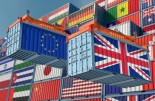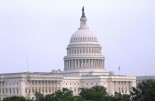AXA IM: A plan for Germany against Chinese competition

In the light of the upcoming German elections, AXA Investment Managers discusses a timely report providing a roadmap for Germany in its response to Chinese competition.
The report, written by Brad Setser and Sander Tortoir for the Centre for European Reform, states that Germany has only recently felt the burnt of China's emergence. For years, while the US and a growing number of EU member states were calling for a more muscular approach, Berlin could afford to choose benign neglect.
Gilles Moëc, AXA Group Chief Economist and Head of AXA IM Research, adds the following thoughts to Setser and Tortoir's paper:
'The authors try to distance themselves from all out protectionism by insisting on the fact China does not comply with the rules of the game, so that countervailing duties, offsetting state subsidies in the exporting country, are acceptable under WTO rules, for instance the granular tariffs levied by the EU on Chinese EV producers, which the German government unsuccessfully opposed. Basically, what Setser and Tortoir advocate is an alignment on a more 'French' approach to international trade issues. They make the interesting point that traditional 'free traders' such as Denmark and the Netherlands have already made this choice. Germany is increasingly isolated.
We sympathise with Setser and Tortoir’s arguments, but we would add that politically a delicate balance would need to be maintained between a specific, WTO-compliant rollback approach to China, and the temptation to gradually extend this to international trade in general. We would also add that such strategy would need to be coupled with some fiscal loosening by Berlin, so that Germany makes gradual progress towards a more balanced economic model, less reliant on exports.
This would remain a tough game to play though. While the EU could offer to Washington DC the possibility of a united front against Chinese trade, we do not know at this stage if the Trump administration would accept to treat Europeans more favourably in exchange for such alignment. Tariffs often appear in D. Trump’s communication as a 'Swiss knife' policy tool, not just as a way to contain China. German policy circles could choose to focus on a double jeopardy risk: losing much of their remaining market access to China in case Beijing retaliates, while facing at the same time more trade barriers in the US. Yet, another benefit of the 'rollback', which the authors do not mention, is that this would further solidify monetary union. Indeed, beyond the fact that trade policy is squarely an EU competence, a lesser reliance on the Chinese market could also convince German businesses that, even if the growth potential there is not stellar, European markets remain crucial to Germany, and the last thing its exporters need right now, is a collapse in European demand, or doubts as to the solidity of the Euro.'









